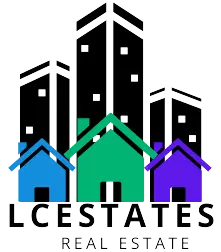The inflation rate in the US has hovered at over 8% for months, despite efforts to fight rising costs.
Whether on their JEA bills or rental agreements, at the gas pump or in the grocery store — where food inflation has risen to 11.4%, the most since 1979 — people are feeling economic pressure.
The annual inflation rate was down from 8.5% in July to 8.3% in August, the lowest in four months, according to the US Bureau of Labor Statistics. But many families still saw higher-than-normal costs in their monthly budgets.
Solutions to combat housing crisis: What are other Florida areas are doing?
Struggling to find affordable housing? These resources may help
Inflation hits insurance industry hard: Jacksonville homeowners struggle as property insurance costs soar. What’s behind the rise?
Almost a third of Gallup survey respondents — 32% — said inflation or the high cost of living was the most pressing economic issue to them and their family, up from 8% in 2021. Another 10% mentioned the price of gas or energy — up from just 1% in 2021.
Energy bills taking up more of the budget
Nationally, gasoline and power bills now account for about 34% of the monthly budgets for those in the lowest income bracket, up from 31% last year, according to the National Energy Assistance Directors Association.
In Jacksonville, rising utility costs in August were one of the biggest concerns for residents, who have seen the fuel charge portion of their bills drive up the cost of electricity.
A residential customer using 1,000 kilowatt hours saw a month-over-month increase of 8.5% in their energy bill, before city and state taxes and fees, and a year-over-year increase of about 26.5%.
Utility costs on the rise: JEA customers’ electric bills keep rising at a rapid clip. Here’s why.
Rent on the rise
In the rental market, things aren’t much better.
Overall median rent in Jacksonville is $1,623, a year-over-year increase of about 11.9%, just under the national average increase of 12.3% and national average rent of $1,879, according to a July report from Realtor.com.
A Jacksonville studio apartment averaged about $1,199 in July while a one-bedroom apartment averaged $1,506, and a two-bedroom apartment ran about $1,770.
John Rutherford, senior vice president of investment sales at NIA Hallmark, said in a June interview with the Times-Union that the growth rate in Jacksonville — and Northeast Florida as a whole — has contributed to higher occupancy rates and, as a result, higher housing costs.
The effect of rent per square foot is highest in the Jacksonville area downtown and at the Beaches, Rutherford said, and rents are going up in other areas in Northeast Florida as well.
“It’s always been a desirable place to live for those that know about it, and a lot more people know about it now,” he said.
But, with desirability comes higher housing pricing, and the cost of living isn’t far behind.
In a July survey of over 1,300 renters conducted by Realtor.com, about 60% of respondents say that the increasing cost of rent and other housing expenses are causing financial strain for their household.
At the same time, 57% reported their rent increased, showing that the rent increases we see on the market for available listings have made their way into lease renewals as well, and 81% of those who were considering buying a home said rising interest rates and inflation impacted their plans.
Overall, rental prices are starting to creep back down from a steady increase over the course of the spring and summer months, but this leveling off won’t save consumers with other bills on the rise.
This article originally appeared on Florida Times-Union: Summer inflation hits budgets for Northeast Florida residents
